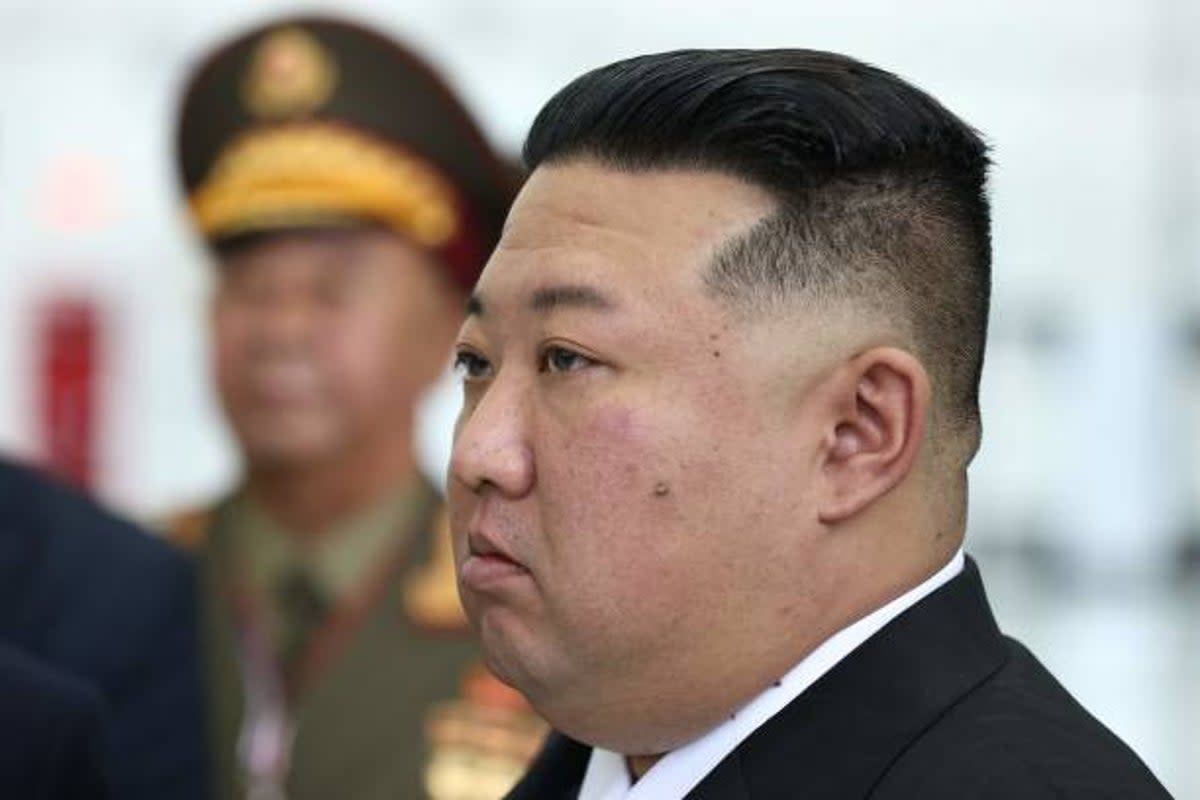North Korea warns interference in its satellites would be ‘declaration of war’

North Korea has warned the US that any interference or attack on its spy satellite would be “deemed a declaration of war” – a threat that came after South Korea blasted its first military spy satellite.
Pyongyang would respond to any US interference on its “space assets” by eliminating the viability of US spy satellites and would mobilise its war deterrence, state media KCNA said.
“The US Space Force’s deplorable hostility toward the DPRK’s reconnaissance satellite can never be overlooked as it is just a challenge to the sovereignty of the DPRK, and more exactly, a declaration of war against it,” the country’s defence ministry said in a statement reported by KCNA.
“In case the US tries to violate the legitimate territory of a sovereign state by weaponising the latest technologies illegally and unjustly, the DPRK will consider taking responsive action measures for self-defence to undermine or destroy the viability of the US spy satellites," it added.
North Korea launched its “Malligyong-1” spy satellite on 21 November in what was its third attempt at putting such a satellite in orbit, after two failures in May and August.
It came before South Korea’s scheduled launch of its spy satellite into space, amid an intensifying space race on the peninsula.
The warning was made in response to a comment by a US Space Command official who allegedly “spouted rubbish hinting at a military attack on the DPRK’s reconnaissance satellite”, according to KCNA.
It said that the unnamed US official allegedly claimed that the US “can decrease the enemy country’s outer-space operation capabilities” by using “diverse reversible and irreversible methods”.
Pyongyang launched a fresh attack on the US and its allies on Saturday, issuing a commentary by Kang Jin Song, a North Korean international relations analyst.
It warned the US of a “thermonuclear war” and said Washington would be responsible for the “catastrophic consequences” of its actions.
It blasted the US for its “nuclear war exercises racket” in the Korean peninsula, saying the US deployed nuclear carrier Carl Vinson and nuclear-powered submarine Santa Fe to the Jeju naval base in South Korean waters on 21 and 22 November.
Raising concerns over heightened activity throughout this year, analysts said the US deployed its strategic nuclear submarine near the Korean peninsula for the first time in 40 years and landed its nuclear strategic bomber for the first time in the South Korean region.
It said the US had conducted more than 60 large-scale joint military exercises around the Korean peninsula with its allies South Korea and Japan.
“In case an unexpected clash happens in the northeast Asian region around the Korean peninsula, the US, which has continuously put pressure on the security space of the DPRK by escalating military threat and blackmail, will be held wholly accountable for the catastrophic situation,” the commentary said.
It added that the military circumstances for the potential first ever “outbreak of a thermonuclear war are fully mature in actuality”.
A US Space Command spokesperson said Washington could deny an adversary’s space capabilities using a variety of means, when asked if the US could interrupt North Korea’s satellite’s reconnaissance operations.
On Saturday, South Korea blasted its first spy satellite on Elon Musk’s SpaceX Falcon9 rocket from the Vandenberg US Space Force Base in California.
The rocket, with the word “KOREA” emblazoned over it, was placed into orbit approximately four minutes after the launch at 10.19am local time on Friday, South Korea’s defence ministry said.
“Considering resolution and its capacity for Earth observation … our satellite technology ranks in the top five globally,” the defence ministry official said, according to Yonhap.
Tensions remain high in the Korean peninsula. The US on Thursday hit North Korea with fresh sanctions following the launch of a spy satellite. It sanctioned eight foreign-based “agents” of North Korea who facilitated sanctions evasion to gather revenue and technology for its weapons of mass destruction programme.
South Korea also blacklisted 11 North Koreans for involvement in the country’s satellite and ballistic missile development, banning them from financial transactions.

 Yahoo News
Yahoo News 
